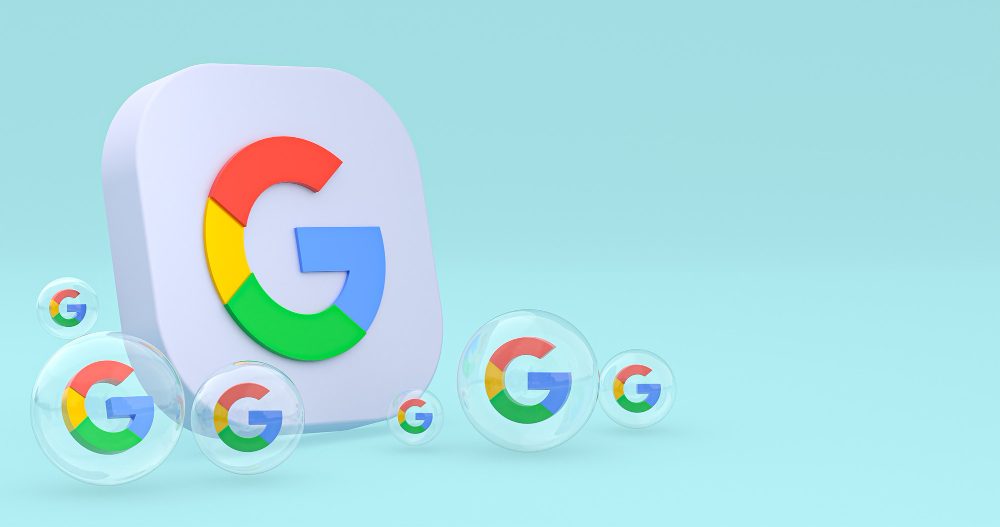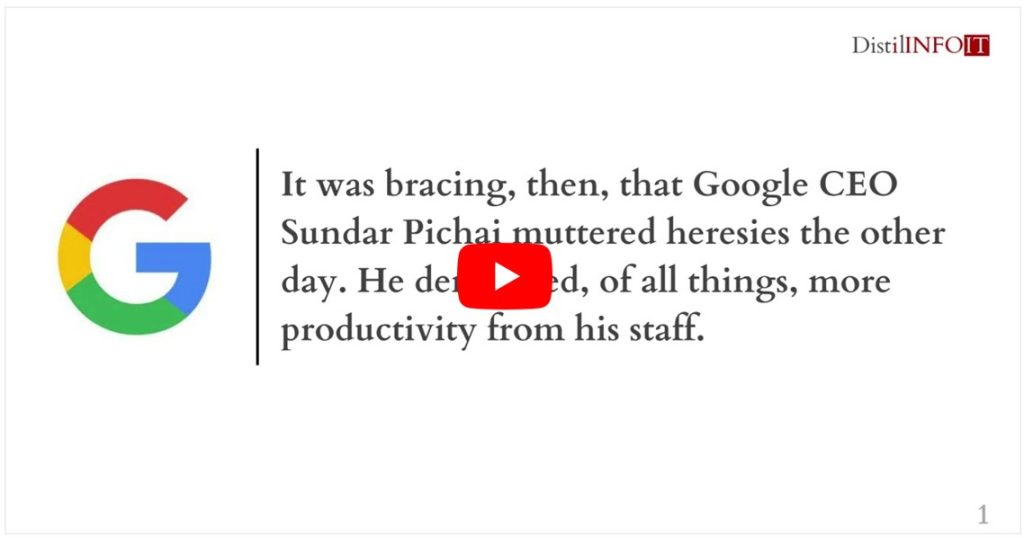
Suddenly, tech firms are in a frenzy. The idea of another recession, reduced profitability, and even, gasp, an uncertain future strikes tech executives with particular anxiety. How can the future be unknown when technology companies have always been in the business of creating it? It was thus refreshing to hear Google CEO Sundar Pichai proclaim heresies the other day. He requested, of all things, increased output from his employees. He uttered horrible ideas. Like efficiency, haste, and hunger. So, what exactly will Pichai do next? Swing a big axe at all those well-intentioned, remote-working, future-creating Google employees? It’s not as though Pichai is on his own. Mark Zuckerberg, CEO of Facebook, is dissatisfied with some of his purported slacker employees. He believes that some of them should go. I can think of at least one. It’s strange, therefore, that HP has picked this time to mock the hunger-crazed, efficiency-obsessed leaders of tech’s future. Here’s HP’s latest commercial campaign, which promotes the new way of working in technology. In his huge office, a properly sneery old-school CEO is giving even greater advice. He argues that there are some old-school ground rules for success. They’re on the beach, in the garden, and even on a ski lift. And they’re overjoyed. They have their HP laptops with them at all of these locations so that they can keep the company wheels rolling at a productive, efficient, and urgent pace. While having a good time.
Suddenly, tech companies are in a tizzy.
The prospect of another recession lowered profitability and even, gasp, an uncertain future fills tech leaders with a peculiar horror.
How can the future be uncertain when tech companies have always been used to creating it?

It was bracing, then, that Google CEO Sundar Pichai muttered heresies the other day. He demanded, of all things, more productivity from his staff.
He spouted heinous concepts. You know, like efficiency, urgency and hunger.
What was this? 1982 and the collected thoughts of Jack Welch? Oh, you might scoff, but remember that Welch began as a chemical engineer before he became, as a new book has it, “The Man Who Broke Capitalism”.
What on earth, then, will Pichai do next? Swing a large axe and frighten all those well-meaning, remote-working, future-creating Google employees?
It’s not as if Pichai is alone. Facebook’s Mark Zuckerberg is meta-displeased with some of his allegedly slacking employees. He believes some of them need to leave. I can think of one, at least.
It’s odd, then, that HP has chosen this particular moment to laugh at the hunger-crazed, efficiency-obsessed leaders of tech’s tomorrow. Here’s HP’s latest ad campaign, one that champions the new way of tech working life.

A suitably sneery old-school CEO is in his large office, dispensing even larger wisdom. There are old-school ground rules for success, he explains.
You need to come in early. You have to work through lunch. You have to burn the midnight oil.
In short, then, you have to be really good at uttering clichés.
While the CEO is declaiming, we’re also seeing young, gloriously pretty modern workers living and working in the new remote ways.
They’re on the beach; they’re in the garden; they’re even on a ski lift. And they’re so, so happy. In all of these places, they have their HP laptops with them so that they can keep the corporate wheels turning at a productive, efficient and urgent pace. While enjoying themselves.

It’s a seductive message.
Especially when you hear the old-school CEO crow about the importance of brown-nosing and see a dog sniffing another dog’s bottom.
I wonder, though, how well HP will handle the future. In real life, that is.
Will it become the apogee of employee happiness, contrasting deeply with Google’s new GE (Get Efficient) ways? Or will it succumb to the same pressures that appear to be affecting its tech brethren?
When things turn toward the worse, it’s easier to see whose management methods are more effective.
In just a couple of years, will the likes of Google be a little different from the likes of GE? Will a fully remote or hybrid company truly demonstrate that it has mastered the ability to please employees and prosper?
Or will things get a little more ugly and old-fashioned?
The big tech companies aren’t young anymore. Will they get stuck in their blessedly optimistic ways?
Or will they revert to the soulless sins of the past?
Source: ZD Net
Leave a Reply